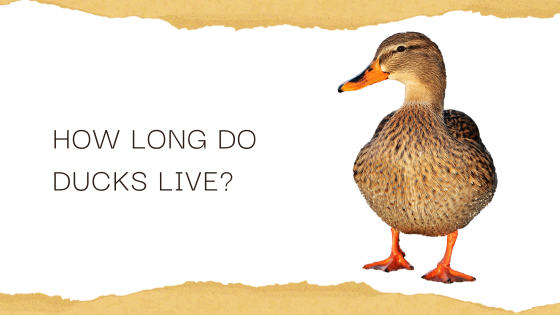Ducks, known for their unmistakable beauty and grace, have enthralled nature enthusiasts from all walks of life with their ability to survive and thrive in diverse environments. These feathered creatures have the unique ability to adapt to a variety of conditions, granting them the resilience required to exist alongside humans in our ever-changing world. Let’s explore the perils they may encounter in their natural habitats, and learn why certain ducks have longer or shorter lifespans depending on their surroundings.
Average Lifespan of Different Duck Species
The average lifespan of different duck species varies considerably, as illustrated by the examples below:
- Mallards: Widely recognized for their green iridescent heads, mallards have an average lifespan of 5-10 years.
- Pekin Ducks: Bred specifically for their meat, these domesticated ducks typically live for about 5-7 years.
- Muscovy Ducks: Another domesticated variety known for its unusual red facial markings, Muscovy ducks have a lifespan of roughly 5-7 years.
These lifespans represent the average age for ducks who are provided with adequate nutrition and shelter. Several factors can influence the longevity of these resilient creatures.
Perils Encountered by Ducks in Nature
In their natural environment, ducks often come across various dangers that may impact their lifespan. Some of the primary challenges they face include:
- Predators: Young and weakened ducks frequently fall victim to predators such as foxes, raccoons, birds of prey, and large fish, threatening their survival.
- Diseases: Ducks living in the wild are susceptible to various diseases like avian influenza and botulism, which may be detrimental to their health and longevity.
- Human activities: The destruction of natural habitats and increasing levels of pollution caused by human actions pose significant threats to the well-being and survival of ducks around the globe.

Lifespan Variations in Different Environments
The habitat in which a duck lives greatly influences its overall lifespan. Ducks in captivity can live longer, owing to the following factors:
- Protection from predators: Ducks in managed environments, such as farms or wildlife reserves, are sheltered from the dangers posed by predators. This safety increases their chances of reaching their maximum lifespan.
- Access to healthcare and a balanced diet: Ducks housed in controlled environments receive care from avian experts and caretakers, ensuring optimum health and nutrition throughout their lives. Access to a proper diet and regular health check-ups significantly affect a duck’s longevity.
In contrast, ducks that call the wild their home must navigate an array of hazards that often reduce their overall life expectancy. However, these brave birds are allowed the freedom to maintain their natural instincts and behaviors, undeterred by human intervention.
Conclusion
The lifespan of a duck depends on an intricate balance of factors, encompassing its species, the challenges presented by its environment, and resource accessibility. As we continue to expand our knowledge of these captivating birds, we must prioritize the preservation and protection of their natural habitats. Only by doing this can we ensure that ducks will continue to grace our waterways and delight future generations with their elegance and serenity. The survival and longevity of ducks ultimately rely on the combined efforts of environmental conservationists, avian specialists, and nature enthusiasts alike, coming together to safeguard these charming creatures’ precious world.